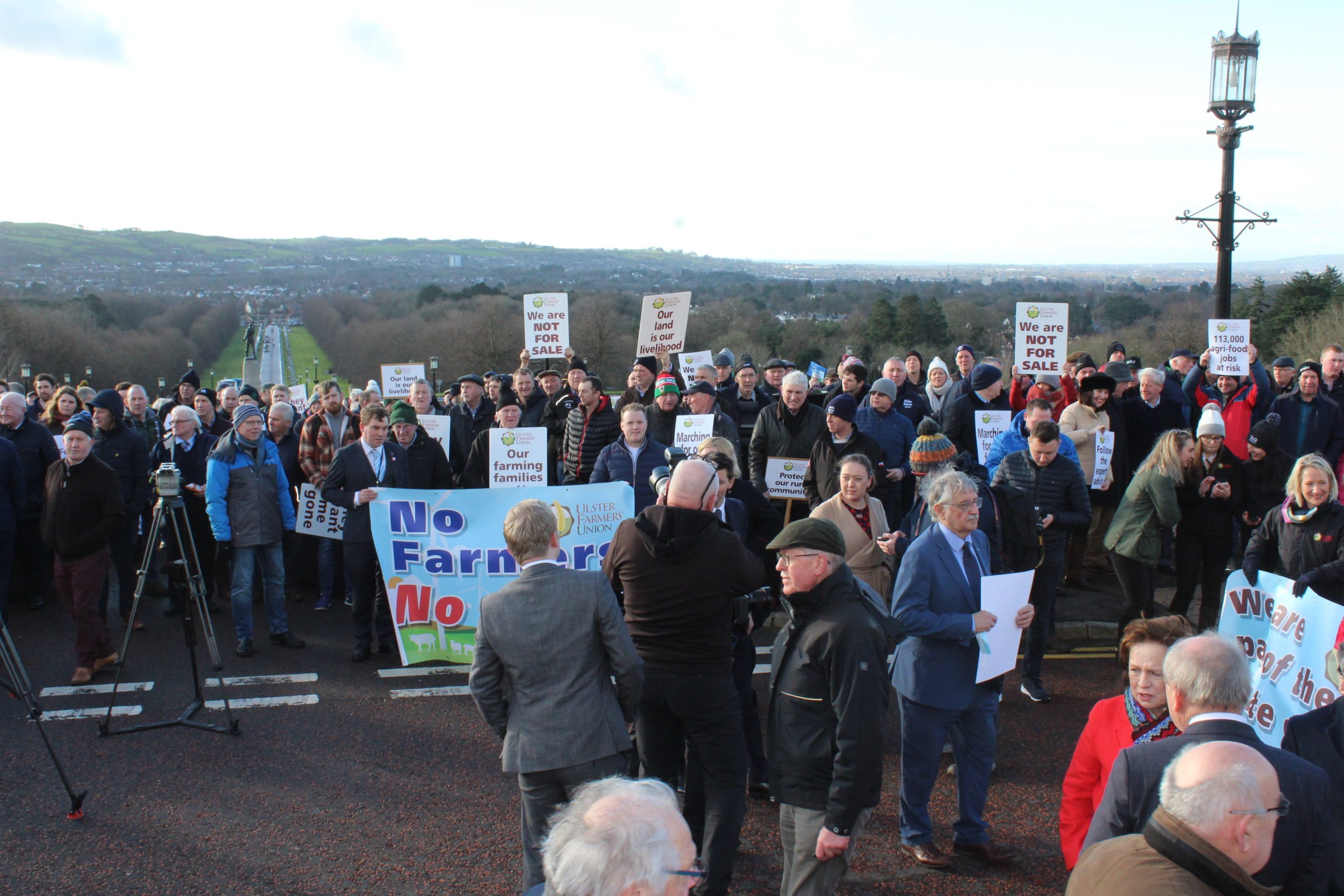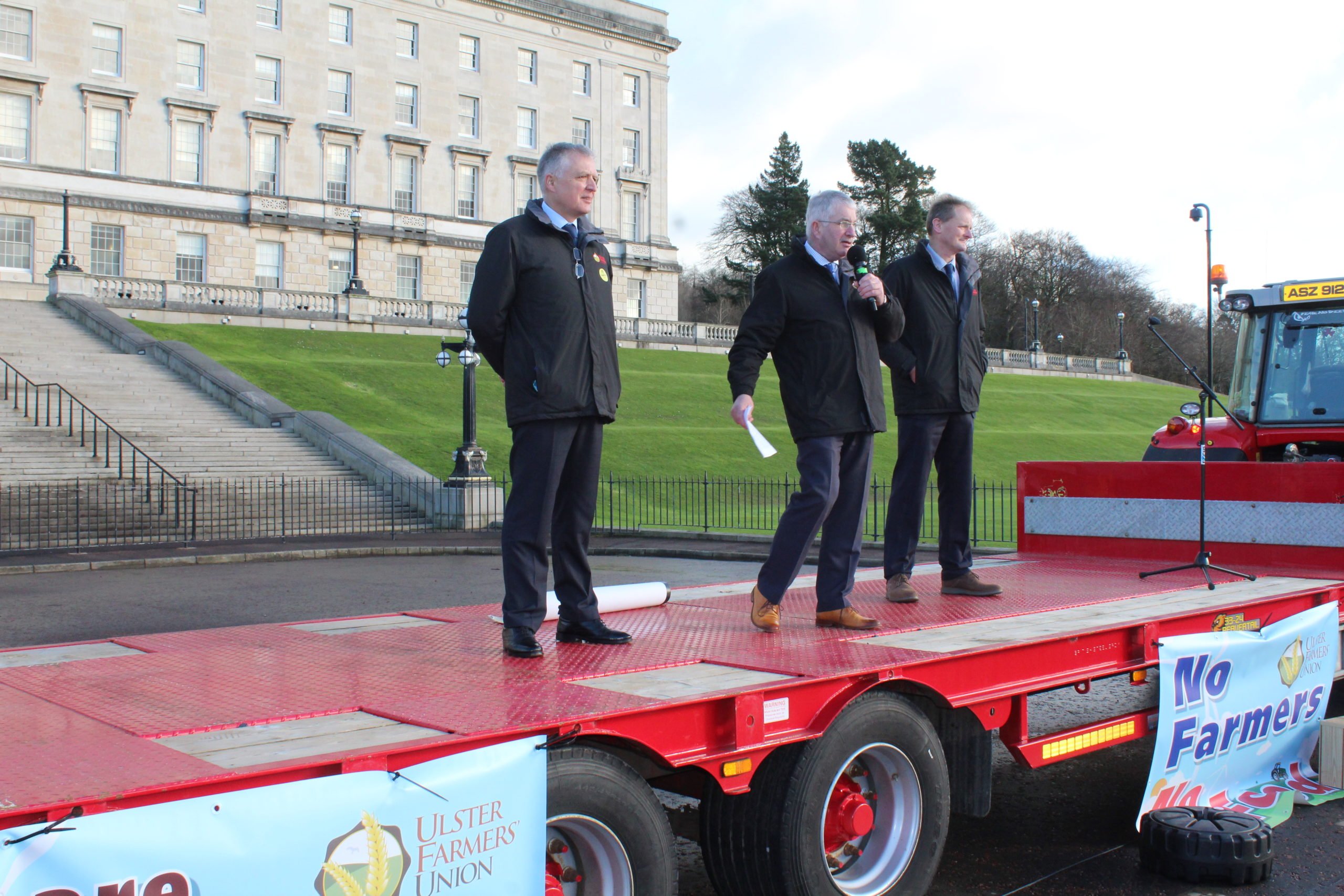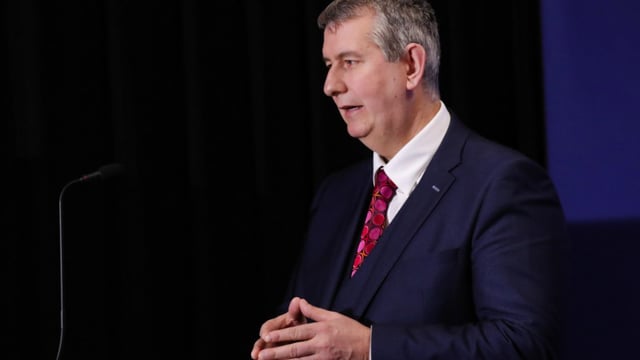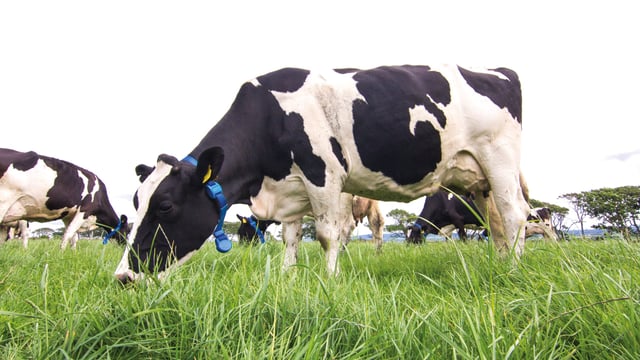More than 700 farmers attend Stormont rally over climate legislation
The Ulster Farmers’ Union (UFU) has said that climate change legislation for Northern Ireland must be based on the appliance of science.
President of the UFU, Victor Chestnutt, addressed a rally attended by 750 farmers at Stormont today (Tuesday, February 1).
The UFU hierarchy said it is deeply concerned that carbon reduction targets espoused by the Green Party could be agreed by the Stormont Assembly later this week.
Such a development, in the view of Victor Chestnutt, could lead to the decimation of Northern Ireland’s livestock sectors.
The Green Party proposal, if enacted, would see Northern Ireland securing a 'net zero' carbon status by 2045.
“This measure would destroy our livestock farming sectors,” stressed Chestnutt.
Significantly, Chestnutt believes that the farming sector can meet what he describes as "realistic climate change targets" moving forward.
He continued: “The farming and food sectors want to see the introduction of realistic climate change legislation now. But it must be driven by science.
The UFU's preferred climate change targets are those currently contained in the bill being proposed by agriculture minister, Edwin Poots’ bill.
If enacted, this would see Northern Ireland achieving an 82% net carbon reduction by 2050.
“These figures were established by the UK’s Committee for Climate Change [CCC]," the union president added.
"The time for party politics is over. Stormont must follow the CCC experts and get on with finding a way forward that works for all of society including our farmers. We know the journey ahead will not be easy, we know we have a big role to play, and change is coming, but we are up for that challenge," Chestnutt said.
UFU deputy president, David Brown, also addressed the rally at Stormont. Again, he highlighted the absolute importance of Northern Ireland’s climate change legislation reflecting the most up-to-date scientific thinking.
“Once the legislation is in place, there is no going back. The agri sectors in Scotland are already finding this to be the case,” he explained.
“And the same will be the case here in Northern Ireland as we look to the future," he said.







